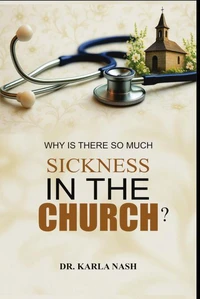I chose this topic because it is personal to me. Being a youth leader for many years, I have been in the company of numerous young African American men between the ages of 13 and 17 and, sometimes, even younger than that. These young men would frequently brag to each other about the many women/girls that they were having sexual encounters with. When I asked these young men if they were using condoms during sexual activities, I can only remember one or two in my time as a youth leader who said they used condoms.
Yet, condom use has long been recognized by medical researchers as one of the most effective methods of preventing the spread of HIV/AIDS, reducing the incidence of this disease by 70%. And while the topic is not talked about much anymore, HIV/AIDS is still prevalent, with approximately 39.0 million people living with HIV in 2023, according to the World Health Organization. This number has only grown with the outbreak of HIV in 2024 and 2025 in Atlanta, New Orleans, Houston, Texas, Alabama, South Carolina, Pennsylvania, Jackson, Mississippi, and the Philippines, due to men on the down-low and individuals choosing not to practice safe sex.
I chose this topic for my doctoral thesis because it is imperative that people know that HIV/AIDS is a disease that claims lives globally, and that African Americans are at greater risk for HIV/AIDS than any other ethnic group, due to lack of education, awareness, and low-income status. This book is intended for educators, social workers, and others working in these communities.*Although the main research for this book was done up through 2023, I continue to study this subject and have obtained current data stating that HIV/AIDS is still prevalent and growing globally.
I chose this topic because it is personal to me. Being a youth leader for many years, I have been in the company of numerous young African American men between the ages of 13 and 17 and, sometimes, even younger than that. These young men would frequently brag to each other about the many women/girls that they were having sexual encounters with. When I asked these young men if they were using condoms during sexual activities, I can only remember one or two in my time as a youth leader who said they used condoms.
Yet, condom use has long been recognized by medical researchers as one of the most effective methods of preventing the spread of HIV/AIDS, reducing the incidence of this disease by 70%. And while the topic is not talked about much anymore, HIV/AIDS is still prevalent, with approximately 39.0 million people living with HIV in 2023, according to the World Health Organization. This number has only grown with the outbreak of HIV in 2024 and 2025 in Atlanta, New Orleans, Houston, Texas, Alabama, South Carolina, Pennsylvania, Jackson, Mississippi, and the Philippines, due to men on the down-low and individuals choosing not to practice safe sex.
I chose this topic for my doctoral thesis because it is imperative that people know that HIV/AIDS is a disease that claims lives globally, and that African Americans are at greater risk for HIV/AIDS than any other ethnic group, due to lack of education, awareness, and low-income status. This book is intended for educators, social workers, and others working in these communities.*Although the main research for this book was done up through 2023, I continue to study this subject and have obtained current data stating that HIV/AIDS is still prevalent and growing globally.

 , qui est-ce ?
, qui est-ce ?